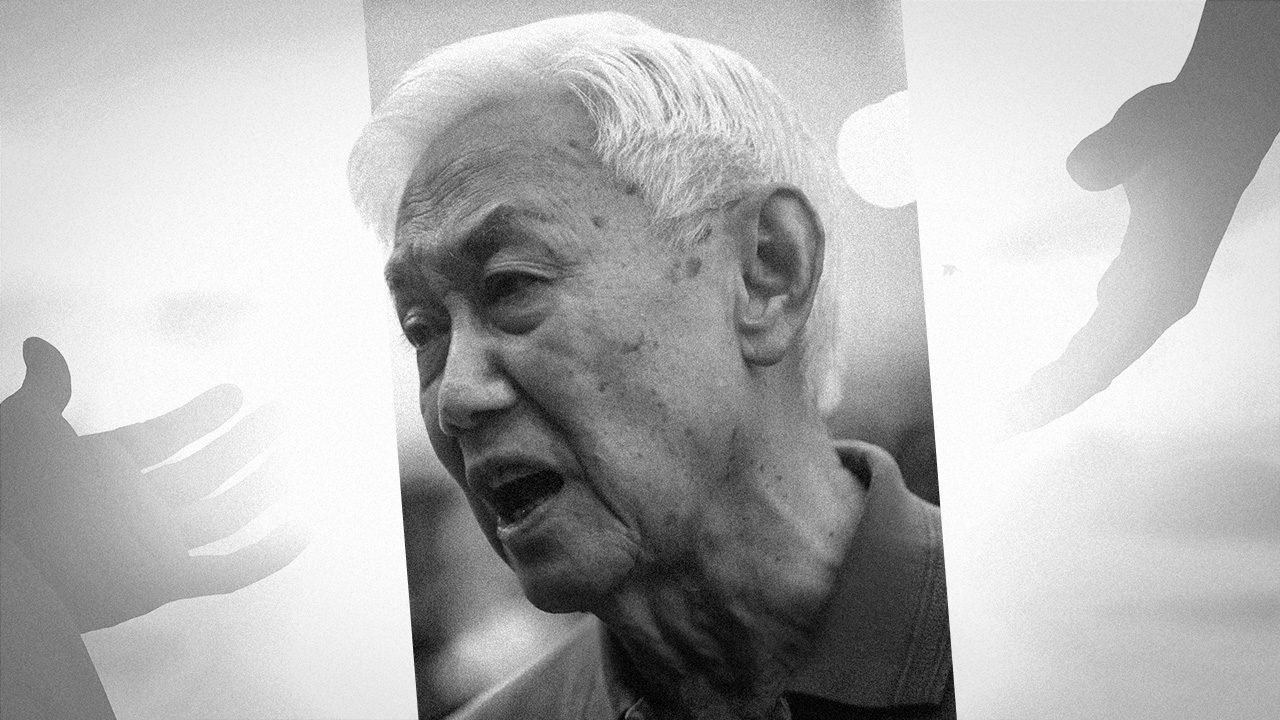Physical Address
304 North Cardinal St.
Dorchester Center, MA 02124
Physical Address
304 North Cardinal St.
Dorchester Center, MA 02124

Jalandoni’s life teaches us that the most enduring revolutions are those rooted in compassion. For what is a revolution if not an act of profound love for the people?
Kindness is a trait not often associated with revolutionaries. Often portrayed as angry men with clenched fists, fiery words, and iron resolves, history paints revolutionary leaders as figures of defiance and confrontation — grim and determined warriors in the face of oppression, unyielding in their struggle for change.
And yet, among the ranks of Filipino revolutionaries who dared challenge the evils of the status quo, there was Louie Jalandoni — soft-spoken, gentle, unfailingly kind. In him, we find a rare and powerful contradiction: a revolution led not by hatred but by compassion.
Louie, former priest-turned-revolutionary, diplomat of the underground, and one of the most enduring faces of the National Democratic movement embodied a trait rarely associated with the revolution he led — kindness. It was not a passive kindness, nor one that shirked from struggle. It was not charity, either. Rather, it was a deep, militant kindness rooted in empathy, a profound love for the oppressed, and an unbreakable faith in people’s capacity to change and liberate themselves.
His journey began in privilege. Born to a landed family in Negros, Jalandoni could have easily lived a life of comfort, far removed from the harsh realities of the masses. But he was different. As a child, he would play with the poor children of his plantation’s farm workers, visit their homes, and wonder why he had so much and they too little.
As a young priest, he could not turn a blind eye to the world around him. In the sugar plantations of Negros, he witnessed firsthand the abject poverty, hunger, and daily indignities suffered by the sacadas and farm workers who toiled under the hacienderos’ boot. For Jalandoni, Christianity was not about ritual or hierarchy — it was about justice. His faith demanded solidarity with the poor, and that solidarity soon led him out of the priesthood and into the arms of the revolution, becoming an enemy of his own class.
It takes great moral courage to walk away from privilege. To forego your inheritance and give away your wealth. It takes even more to dedicate one’s life to fighting a system from which one once benefited. But what defined Jalandoni was not just his courage, but the gentle, respectful way he carried himself even while confronting the monstrous injustices of state and society. And yes, his enduring kindness and generosity that touched so many in and out of the movement.
In the middle of fighting a revolutionary war, he maintained a quiet dignity, always approachable, always listening. As the people’s struggle surged under the Marcos dictatorship, the revolution needed a face on the world stage. Louie fulfilled that role excellently as the international representative and top diplomat of the National Democratic Front of the Philippines (NDFP). He embodied the contradictions of Philippine society; the forces that sought to maintain the status quo and those that sought to transform it. And he did so with humility and grace.
Comrades who worked with him, negotiators who faced him across the table, and even adversaries who sought to demonize him all speak of his calm, his patience, his soft but firm voice that refused to waver even under pressure.
In the long, arduous peace negotiations between the NDFP and successive Philippine governments, Jalandoni’s role as chief negotiator was critical. Here, his kindness became a strategic asset. He was unflappable in his principles but never confrontational in his tone. Ironically, he is described as the hardliner in the negotiations, the “bad cop” to Joma Sison, who played “good cop” by always finding ways to compromise and move forward.
Louie treated government negotiators not as enemies but as fellow Filipinos, as people who, like him, were capable of reason and decency. Even when talks collapsed, even when the state unleashed new waves of repression, he remained hopeful that dialogue could still one day prevail.
For Jalandoni, kindness was not weakness. It was discipline. It was strength. It was revolutionary. In a world that glorifies brute power, he reminded us that revolutions are not fueled by hatred but by love — for the masses, for justice, for a better future. His kindness was militant because it never compromised on the basic demand that the poor must be liberated from the structures that exploit them.
In his later years, even as he stepped down as NDFP chief negotiator, Jalandoni never retired from the movement. He continued to guide, to write, to speak, to inspire. Until his final days, he remained a portrait of revolutionary consistency — undaunted, yet always kind.
Louie Jalandoni’s life teaches us that the most enduring revolutions are those rooted in compassion. For what is a revolution if not an act of profound love for the people?
In these times of deepening tyranny and greed, may we learn from Louie’s example. May we wage our struggles fiercely, but with kindness. May we build a revolution that not only tears down the old but heals, uplifts, and embraces the humanity of all. This is Louie Jalandoni’s legacy — a revolution of kindness. – Rappler.com
Teddy Casiño served as Bayan Muna representative from 2004-2013. Prior to his stint in Congress, he was secretary-general of the Bagong Alyansang Makabayan.